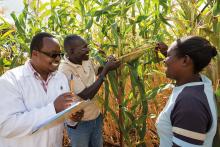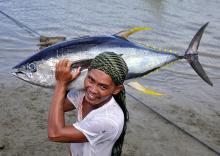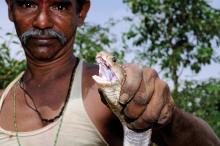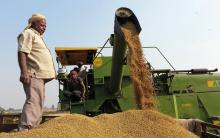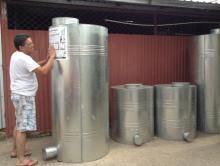Land Library
Bem-vindo à Biblioteca do Land Portal. Explore nossa vasta coleção de recursos de acesso aberto (mais de 74.000), incluindo relatórios, artigos de revistas científicas, trabalhos de pesquisa, publicações revisadas por pares, documentos jurídicos, vídeos e muito mais.
/ library resources
Showing items 1 through 9 of 60.A discussion note from Mekong Region Land governance (MRLG) summarizing findings and recommendations of a multi-stakeholder initiative and study tour conducted in Southern Laos, to study the social and environmental practices of two large scale companies holding large scale concessions in Lao PDR
In a long-term project in Kenya, the Swiss-based Research Institute of Organic Agriculture has examined the potential of organic and conventional agriculture regarding soil fertility, the occurrence of pests and diseases, and profitability.
A 2015 report published by Mekong Region Land Governance project (MRLG) issue of land governance in Cambodia. Land governance is an inherently political-economic issue.
The April 2015 edition of Against the Grain -- a report by Genetic Resources Action International (GRAIN) on laws and mechanisms in Asia that result in land transfer from independent farmers to larger entities.
This report presents a political-economic analysis of land governance at the regional level, focusing on the Mekong Region.
A project run by the WWF has set itself the goal of transforming Philippine tuna fisheries towards more sustainable practices, securing the livelihoods of the small-scale fishers in the long term. European buyers who have committed to source from them provide the necessary incentives.
An ingenious combination of plant breeding, contract farming and processing has enabled smallholder tomato growers to tap new markets in Tanzania’s Arusha Region. Two improved tomato cultivars released from AVRDC lines are at the centre of this success story.
The Sustainable Development Goals (SDGs) will amount to little unless backed by reliable indicators. Only with good metrics can the agenda be implemented and progress measured.
More than 30 years ago, the Swiss Agency for Development and Cooperation (SDC) started a post-harvest programme in Central America named “Postcosecha”. The significant impact that was still evident long after the project end also continues to exist after the cessation of external support.


